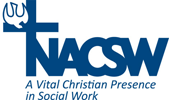What is the Poverty Alleviation Member Interest Group?
The purpose of NACSW’s Poverty Alleviation member interest group is to facilitate discussion between individuals who belong to an NACSW member interest group committed to learning about and exploring ways of address poverty and related issues locally, domestically, and around the world.
What is the focus of the Poverty Alleviation group?
The initial focus will be:
Equipping Christians in social work to be better able to educate and support churches/congregations/denominations regarding a robust range of anti-poverty strategies so that churches/congregations/denominations could play a more active, vital role in joining broader community and societal efforts to combat poverty locally, domestically, and around the world.
Shaping our efforts
Several important principles should shape any efforts of this new member interest group:
- The strategies that we should pay the most attention to are those that have shown themselves to be effective and cost-efficient (“evidenced-based” practice)
- We should be disciplined to ensure that any initiatives or projects we commit to should have both a concrete, hands-on practice/praxis component, as well as scholarly/academic component (so as to invite participation by both practitioners as well as educators/researchers within our membership)
- We should be disciplined to ensure that any initiatives or projects we commit to frame/address issues of poverty at multiple levels, including micro (for example, working for individual and group behavioral change), mezzo (for example, strengthening organizations involved in poverty work) to macro (for example, advocating for economic equality/social justice)
- Anything we work on should keep faith at the front and center of those efforts as we see faith as a motivating force in our lives and work, as source of unique insight andperspective, and a useful connection to communities of faith as potential partners and resources.
Current direction
The Poverty Alleviation group will explore several possible proposals for how to give shape and direction to its work in 2015. Some of the questions these proposals will seek to address include:
- How could our group become more knowledgeable about efforts/work already being done by other groups to educate and support churches/congregations/denominations regarding anti‐poverty strategies, as well as to connect churches/congregations/
- Denominations to broader community and societal efforts to combat poverty? What can we learn from these efforts? What do we have to add to these efforts?
- How would we develop the specific content to disseminate/pass along to/use to train Christians in social work that would enable them to better educate and support churches/congregations/denominations that would significantly increase the capacity of these churches/congregation/denominations to address poverty locally and globally? What should this content include that would be new and fresh, and make a distinctive contribution to what is already available?
- What would be the most effective ways to disseminate/pass along to/use this content to train Christians in social work? How could our group help to set up ways to regularly disseminate/pass along/use this content to train Christians in social work?
- What are some of the most effective ways for Christians in social work to educate/support/build the capacity of churches/congregations/denominations enabling them to play a more active, vital role in joining broader community and societal efforts to combat poverty? How could our group help to facilitate connections between equipped Christians in social work and interested churches/congregations/denominations
- How could our group help churches/congregations/denominations establish and maintain connections with broader community and societal efforts to combat poverty?

